Anthropology has become a popular optional subject among UPSC/CSE aspirants preparing for the UPSC IAS Mains Exam. Its popularity is largely due to the availability of accessible resources and a syllabus that is relatively lighter and easier to understand. Many aspirants shy away from this optional subject, mistakenly believing it to be challenging based solely on its name. The UPSC Anthropology optional syllabus requires candidates to understand anthropology as a science and to apply it to human issues. Since there are many diagrams involved in the study of anthropology, it's important to practice drawing and labeling these diagrams as much as possible.
What is Anthropology?
If you are new to the subject, your first aim should be to develop conceptual clarity and understanding of the subject. Anthropology is the study of people, past and present, with a focus on understanding the human condition both culturally and biologically through the application of biology, cultural studies, archaeology, linguistics, and other social sciences.
UPSC Anthropology Syllabus 2025
As the Anthropology Syllabus for UPSC Mains Optional contains elements from science, it becomes a popular choice among science graduates. The complete Anthropology Syllabus for Optional Exam has been released by UPSC for UPSC CSE (Civil Service Examination) and the same has been discussed in this article.
Anthropology Syllabus for Paper 1
UPSC Syllabus 2024 for Anthropology Optional Subject for Paper 1 is divided into 12 parts which is further sub-divided, the Anthropology syllabus is related to the following topics-
- Meaning, Scope and development of Anthropology, Relationships with other disciplines, Main branches of Anthropology, their scope and relevance, Human Evolution and the emergence of Man, The biological basis of Life, Principles of Prehistoric Archaeology. Chronology, Cultural Evolution.
- Nature of Culture, Society, Marriage, Family, Kinship
- Economic Organization
- Political Organization and Social Control
- Religion
- Anthropological theories
- Culture, Language and Communication
- Research methods in Anthropology
- Human Genetics
- Concept of human growth and Development
- Relevance of menarche, menopause and other bioevents to fertility. Fertility patterns and differentials.
- Applications of Anthropology
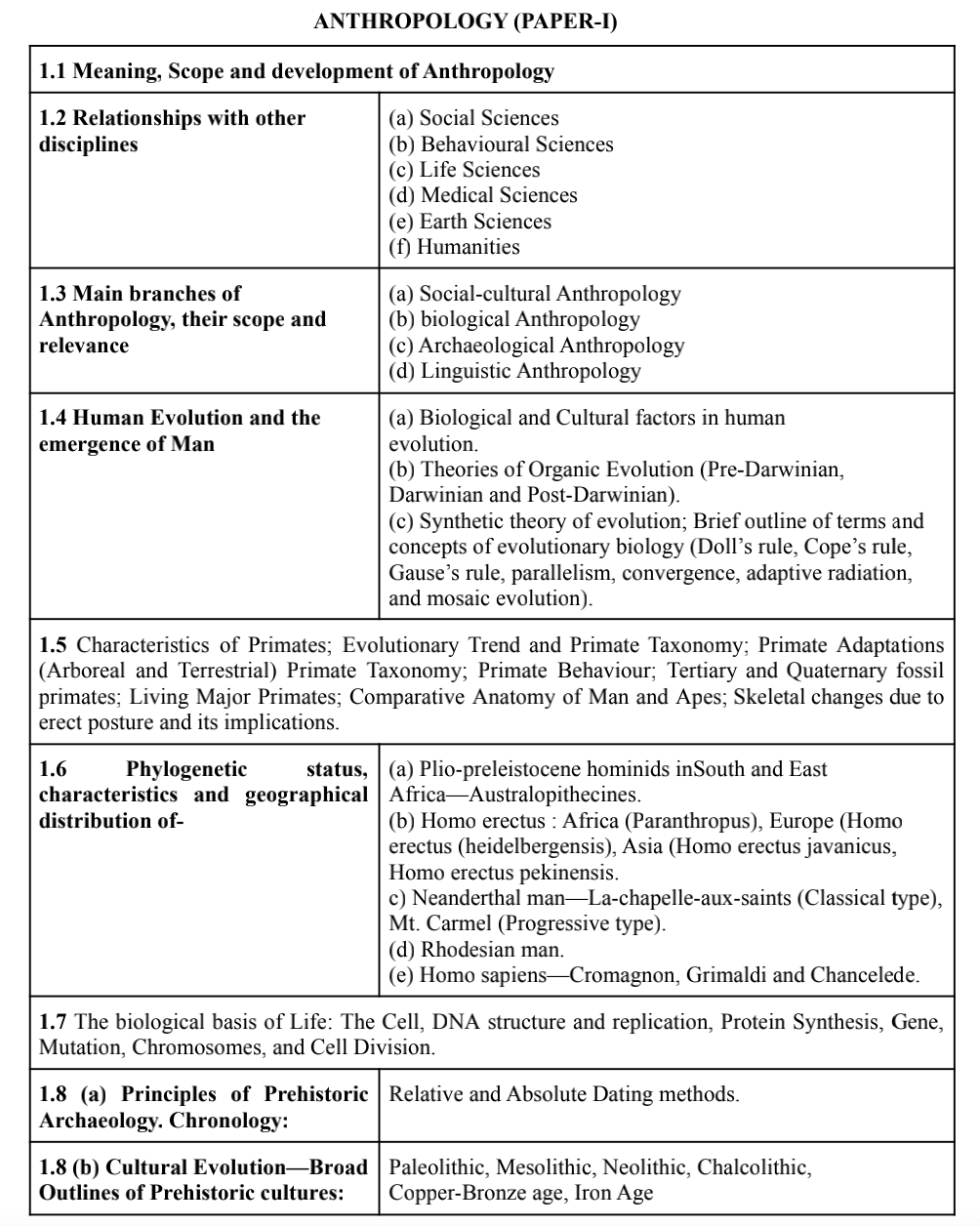
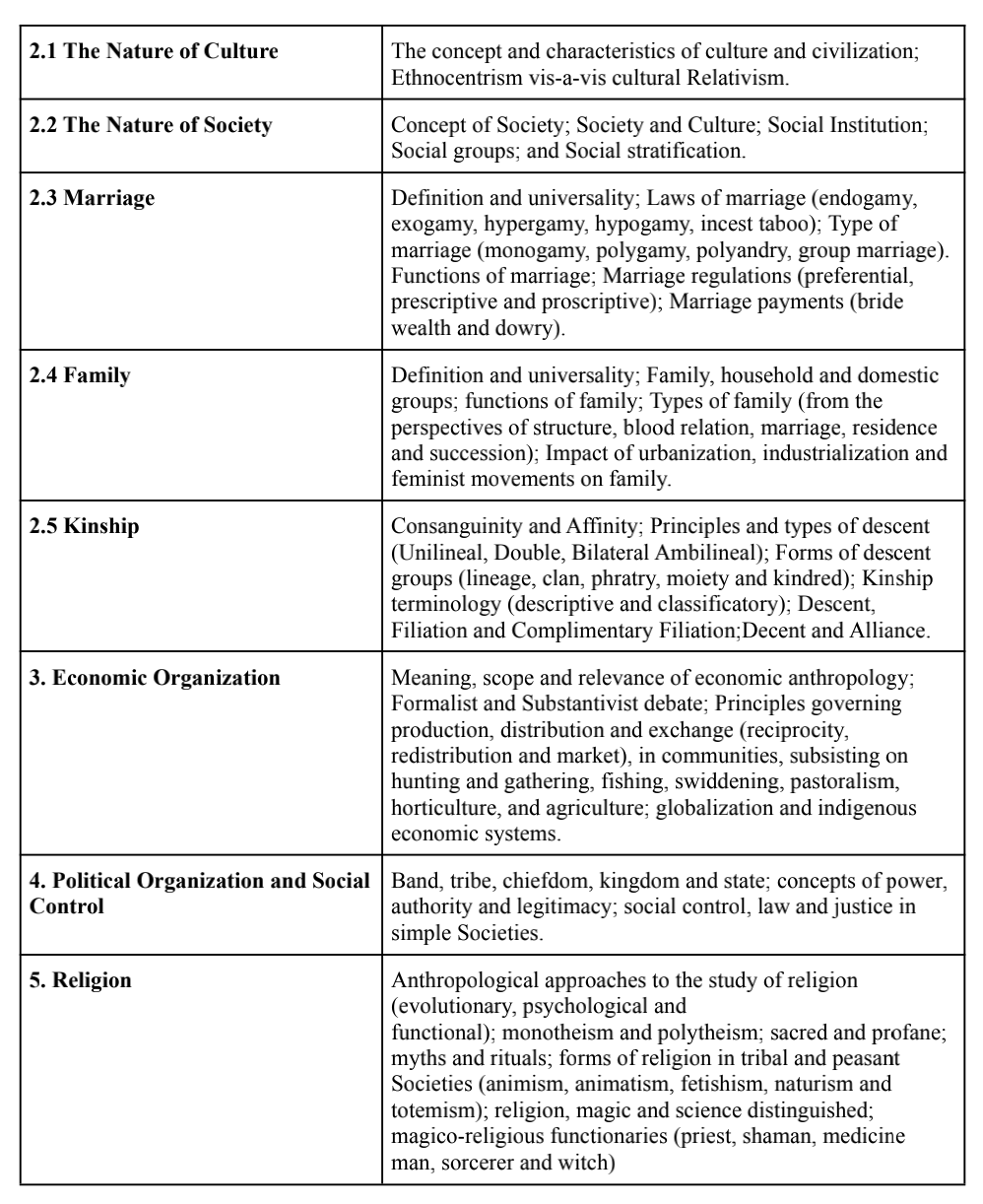
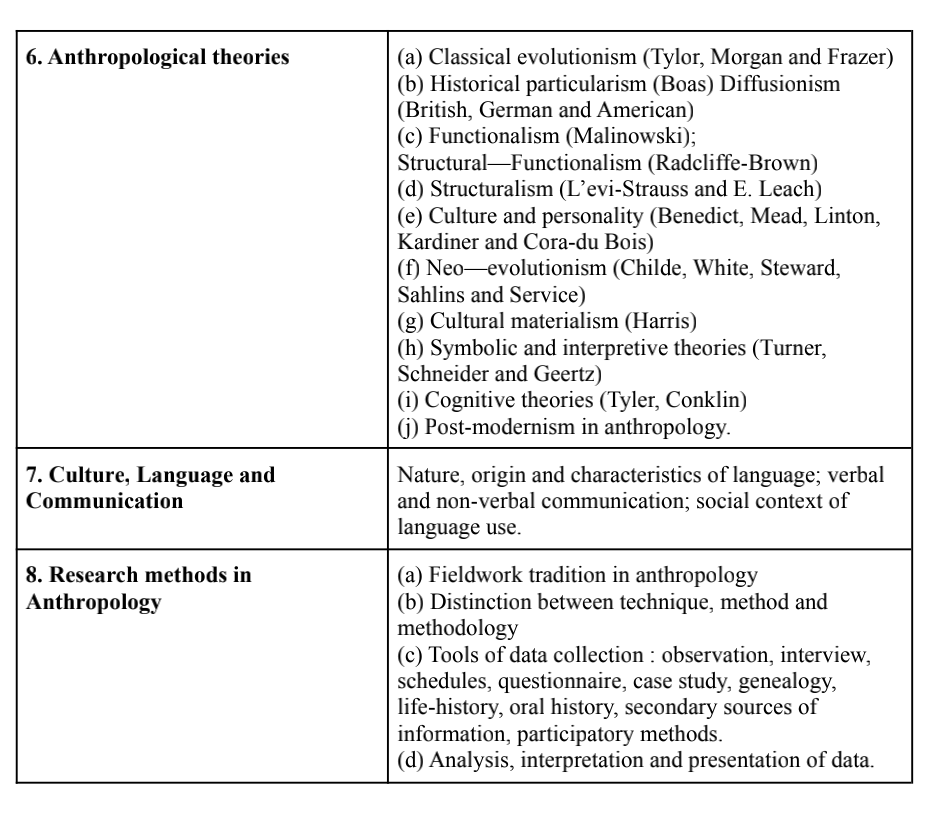
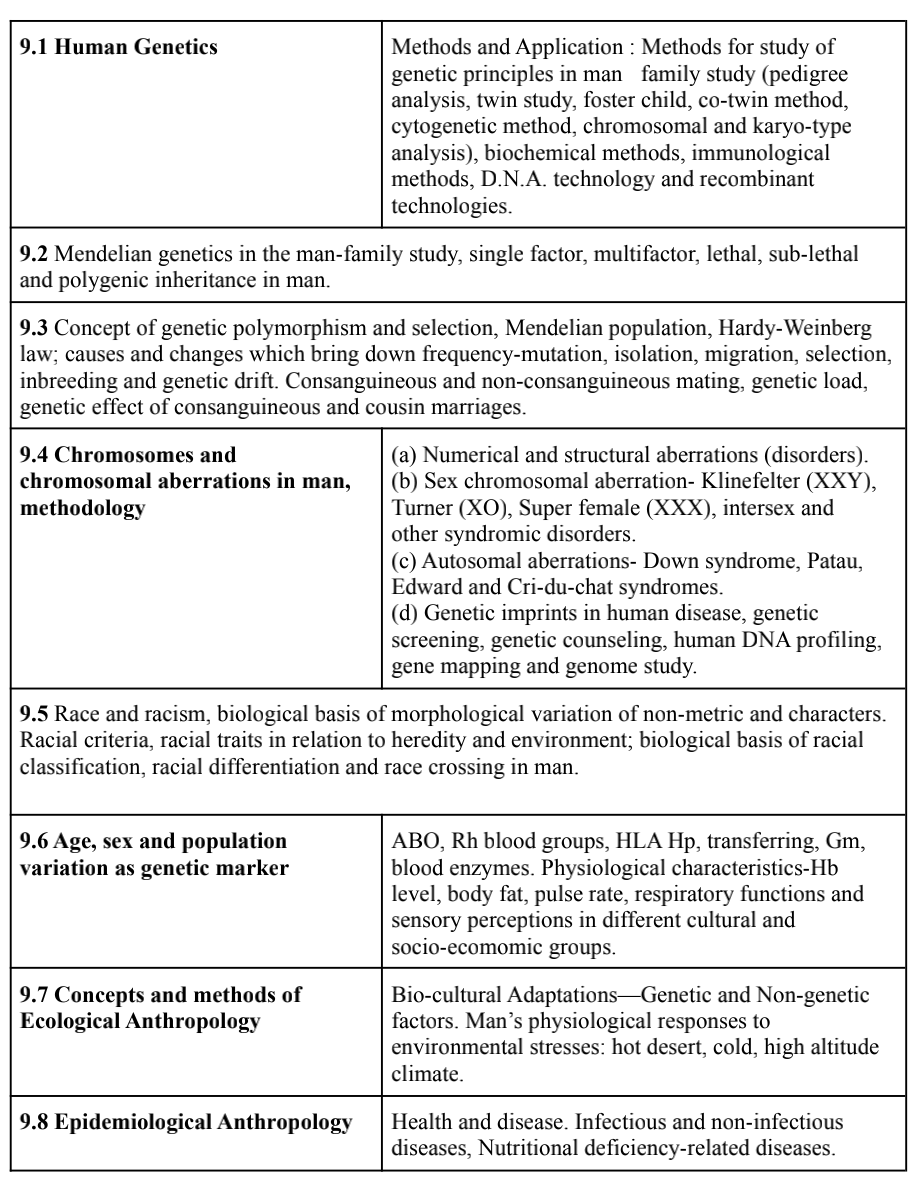
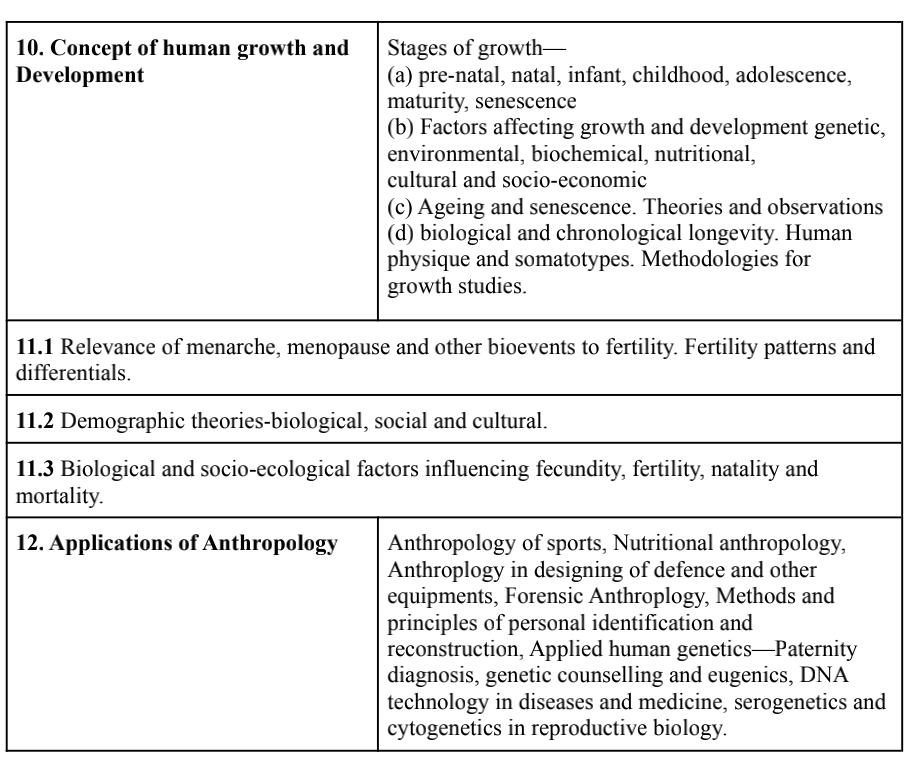
Anthropology Optional Syllabus for Paper 2
The UPSC Anthropology Syllabus for Optional Paper 2 has been divided into 9 units which are discussed below:
- Evolution of Indian Culture & Civilization, Palaeo, Ethno-archaeology in India
- Demographic Profile of India
- Structure & Nature of Traditional Indian Social System, Caste System in India, Sacred Complex and Nature-Man-Spirit Complex, Impact of Buddhism, Jainism, Islam and Christianity of Indian society.
- Emergence, growth and development in India
- Indian Village, Linguistic and religious minorities and their social, political and economic status, Indigenous and exogenous processes of socio-cultural change in Indian society.
- The tribal situation in India, Problems of the tribal Communities
- Problems of exploitation and deprivation of SC, ST and OBC, Social change and contemporary tribal societies.
- Tribe and nation-state, Impact of Hinduism, Buddhism, Christianity, Islam and other religions on tribal societies.
- History of administration of tribal areas, Role of anthropology in tribal and rural development.
The complete Anthropology Syllabus for Paper 2 has been discussed in detail below.
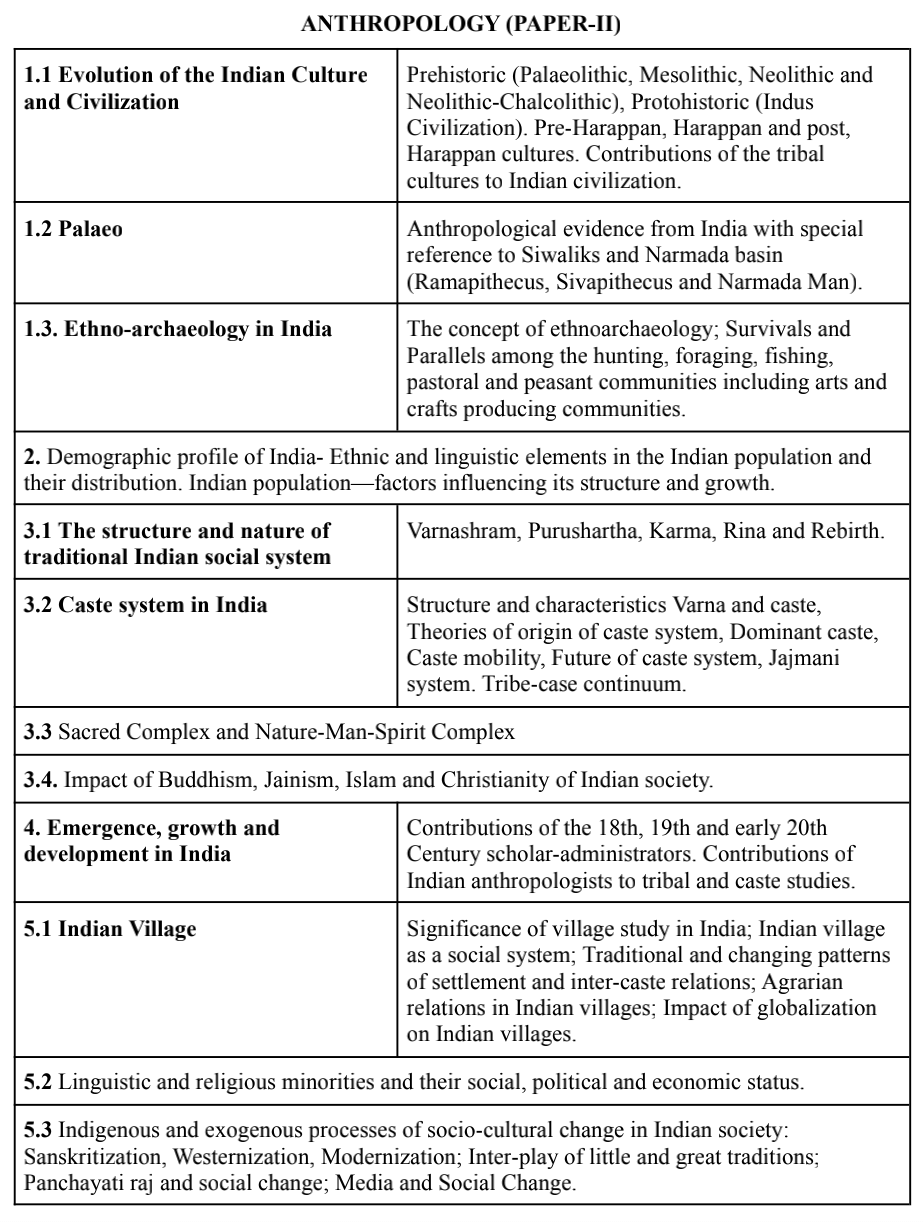
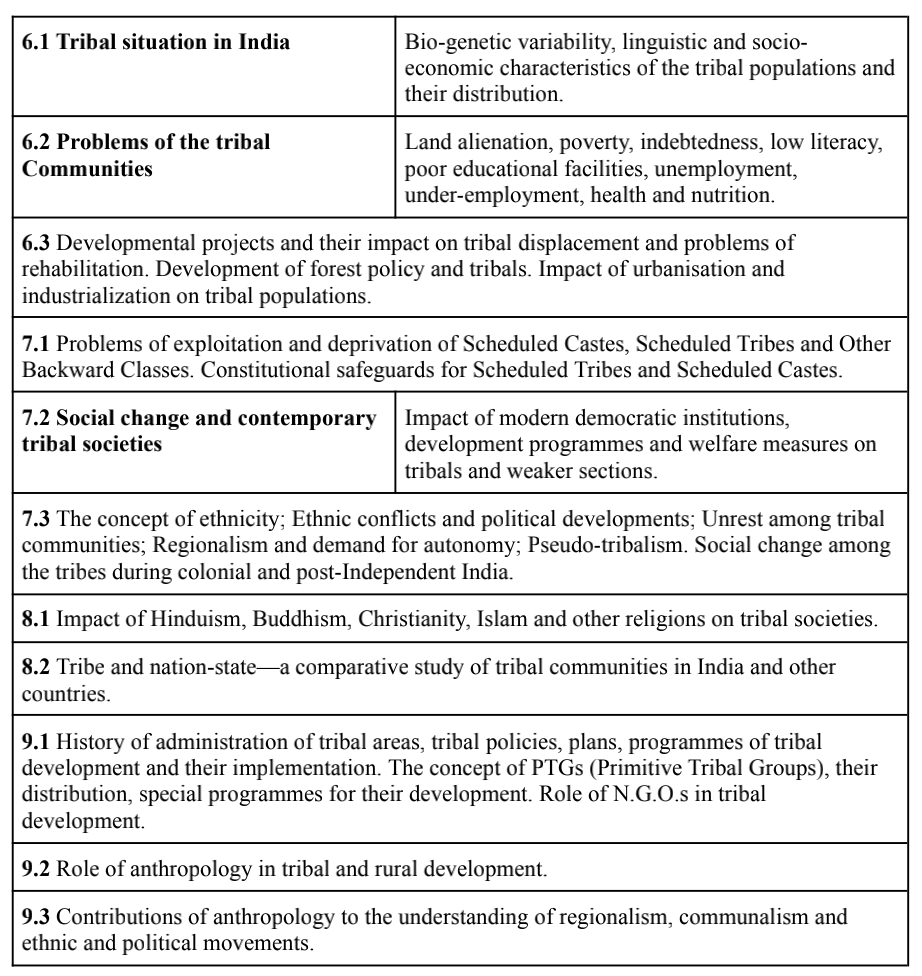
UPSC Syllabus for Mains & Optional Subject
